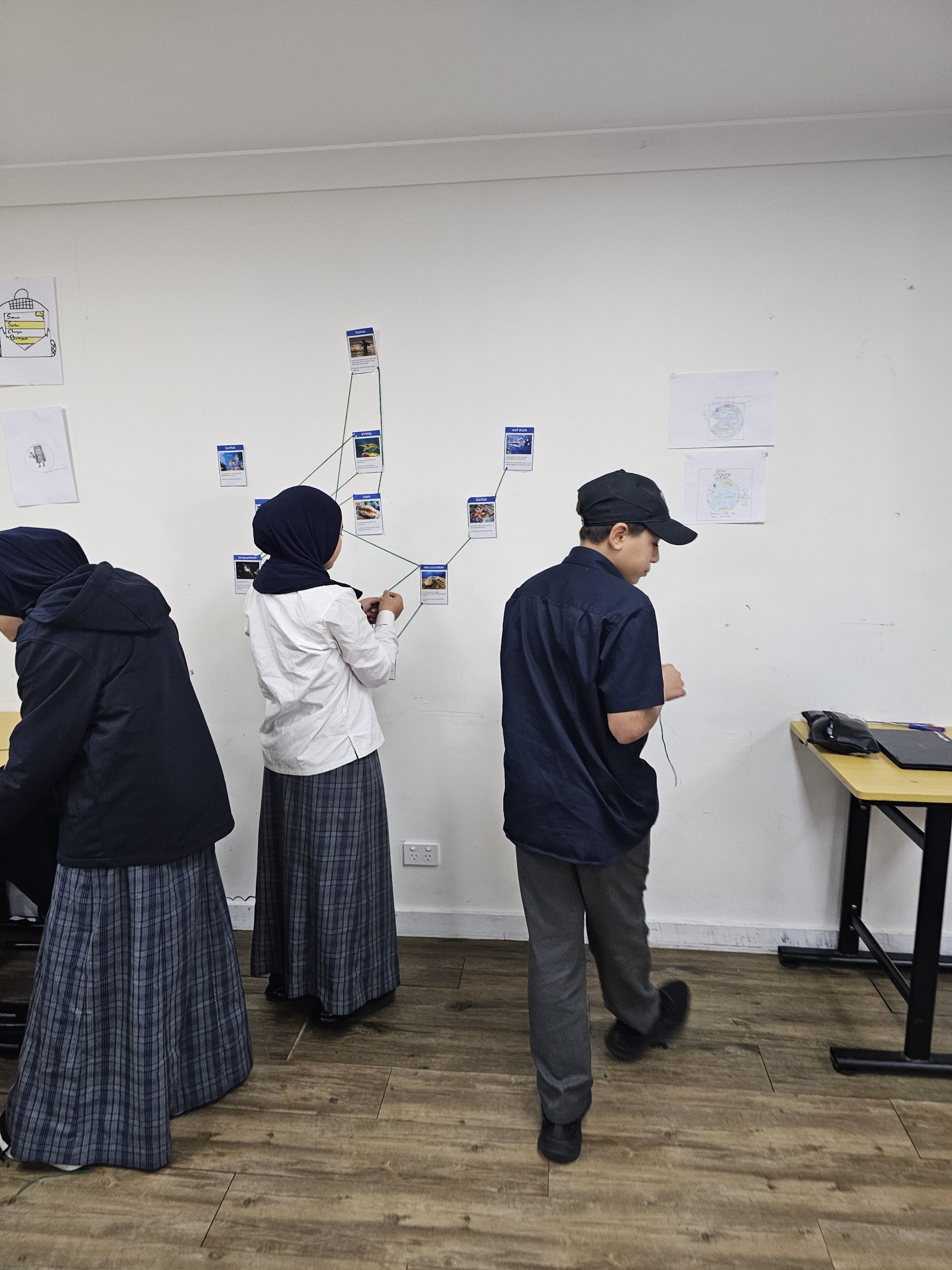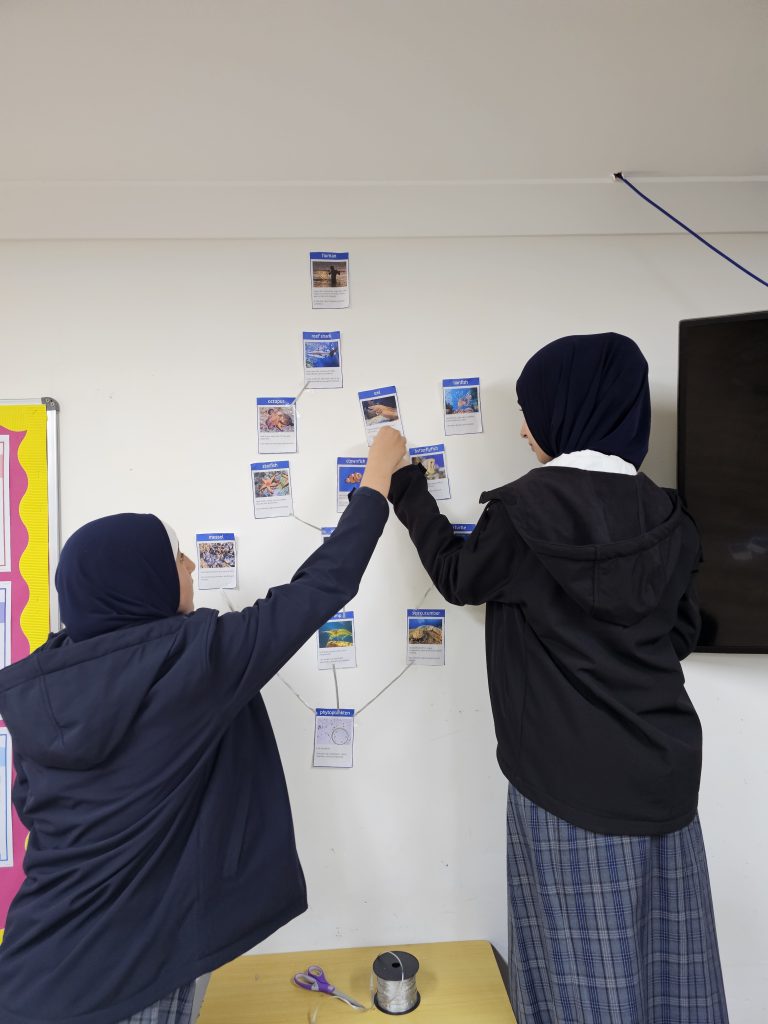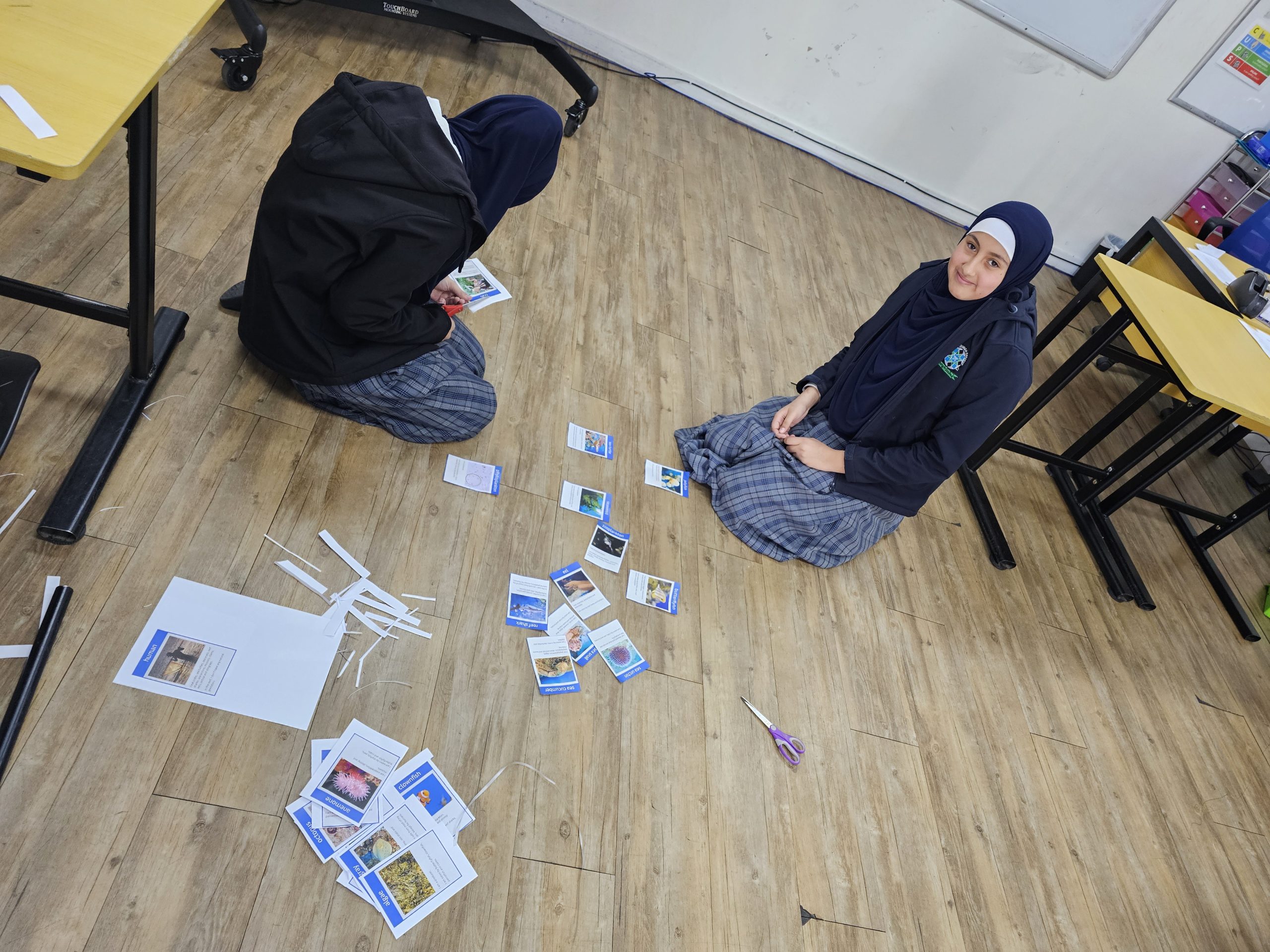Amidst the vibrant corridors of New Madinah College, an expedition into the natural world is underway. Here, Year 7 and 8 students are intrepid explorers discovering the pulsating heart of our planet’s ecosystems through the study of food webs.
Food webs are diagrams that show the complex network of feeding relationships between different organisms in an ecosystem. They help illustrate who eats whom and how energy and nutrients move through an ecosystem. Unlike a food chain, which is a simple linear series of connections (like a direct line from plants to herbivores to carnivores), a food web more accurately represents the multiple connections each organism has with others in its habitat.
For example, in a food web:
- Plants (producers) use sunlight to make food through photosynthesis.
- Herbivores (primary consumers) eat the plants.
- Carnivores (secondary and tertiary consumers) eat the herbivores.
- Omnivores can eat both plants and animals.
- Decomposers break down dead organisms, returning nutrients to the soil, which helps plants grow.
Using the roles of producers, consumers, and decomposers, students uncover the hidden connections that maintain the delicate equilibrium of life. They learn not just to observe, but to connect the dots that form the lifeblood of habitats around the globe. When they explore predator-prey dynamics, it teaches them the harsh, yet poetic realities of survival. Discussions meander through the importance of each creature, no matter how small, in maintaining the health of its habitat.
The interactive simulations allow students to step into roles within their meticulously crafted food webs, experiencing firsthand the interconnections of life. One day they’re a grasshopper evading the keen sight of a bird; the next, they’re a majestic tree providing life-giving oxygen and shelter in the ecosystem. These exercises are not just educational; they are revelations, uncovering the complexity of life that sustains our planet.
Through their journey, the students of New Madinah College develop more than an understanding of scientific principles; they cultivate a profound appreciation for nature’s resilience and beauty. They emerge as young guardians of the planet, equipped with knowledge and driven by the responsibility to protect and cherish our world.




